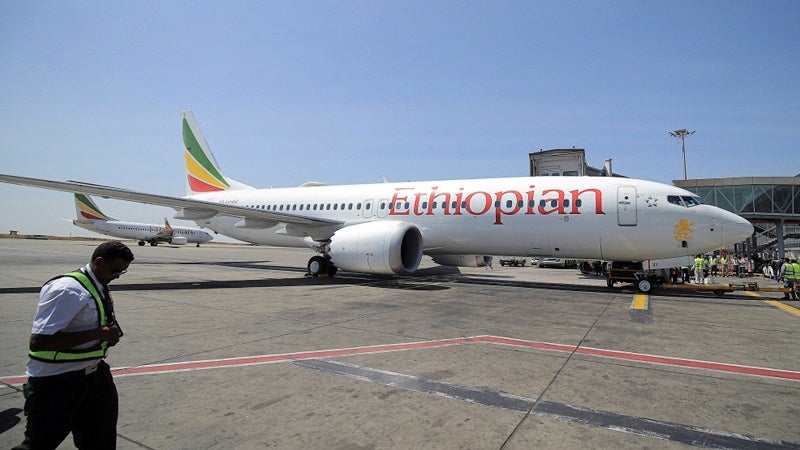
Nigeria’s Ministry of Aviation has selected a consortium led by Ethiopian Airlines as the preferred bidder for Nigeria Air, the country’s new flag carrier.
The deal was executed under a public-private partnership model.

Discover B2B Marketing That Performs
Combine business intelligence and editorial excellence to reach engaged professionals across 36 leading media platforms.
Ethiopian Airlines will have a 49% stake in the new airline, Nigerian Sovereign Fund will own a 46% interest, while the remaining 5% stake will be held by the Nigerian federal government.
Nigeria Aviation Minister Hadi Sirika said: “We are going to initially bring in six Boeing 737 aircraft, and between the third and fourth years, the airline will be able to acquire up to 30 aircraft. Nigeria Air is a limited liability company that will have no government intervention.”
Nigeria Air will have an initial capital of $300m and plans to have 30 aircraft within four years, Sirika added.
A contract for three Boeing 737-800s has been finalised with Ethiopian Airlines.

US Tariffs are shifting - will you react or anticipate?
Don’t let policy changes catch you off guard. Stay proactive with real-time data and expert analysis.
By GlobalDataThe Nigerian Government intends to complete all the procedures, including due diligence, contract negotiation, as well as the issuance of a compliance certificate by mid-Nov-2022 and launch the carrier by the end of 2022.
Initially, Nigeria Air will operate between the capital Abuja and Lagos and plans to increase its operations to other routes later.
The Nigerian government is said to have been focused on setting up a national carrier and developing its aviation infrastructure with an objective to create a hub for West Africa.
In May, Nigerian airlines abandoned their plans to ground local flights due to a surge in jet fuel prices.
The Airline Operators of Nigeria (AON) association had previously planned the suspension from 9 May as a mark of protest against the price rise.





